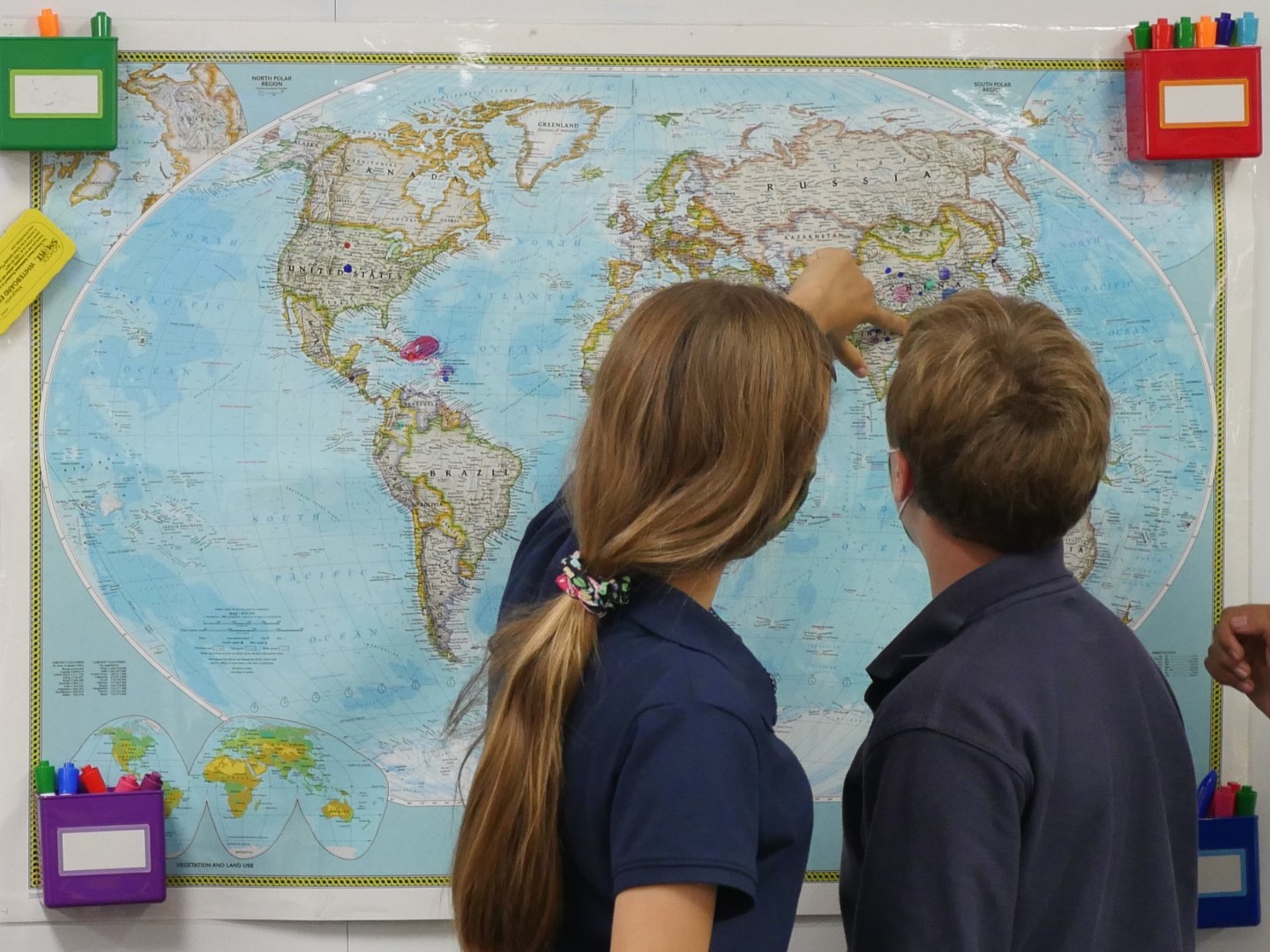“After 8 days the Bay Area becomes more expensive than Jamaica. But the longer you stay in Jamaica the more worth it it gets.”
8th Grade mathematicians this week used equations to represent real contexts for change through time, whether in 8 Algebra or Upper School Math 1. Students in 8 Algebra are using systems of equations to answer: “Is it more expensive to travel local but swanky, or international but budget-conscious?”
Is it more expensive to travel local but swanky, or international but budget-conscious?
They compared costs for flights and lodging for an international destination of their choosing vs the costs of staying in a 5-star hotel within driving distance. After researching flights, hotels, a tank of gas, and so on, students wrote two equations representing the cost to stay n nights in places like Bali vs. Napa, and graphed the intersection showing which day the local option becomes more expensive. From pirate ships to limos, Greece to Stockholm, students put finishing touches on posters to present their equations and graphs, with keys, labels, and panels of information about their research basis. In 8th Grade Upper School Math 1, students worked on Exeter problems that also require systems of equations, including quadratics, to try and answer questions that have many possible entry points and methods.
One group presented and questioned if any approach was possible to answer: “The diagonal of a rectangle is 15cm. The perimeter is 38cm. What is the area? Is it possible to find the answer without finding the dimensions? Try it.” Across both classes, students iterated, checked their work with another method or tool, got one-on-one help, and prepared to present their ideas to peers, ready for critique and questioning. At Hillbrook, success in math means applying math reasoning to novel contexts, asking questions and constructing new understanding together, whether you’re dreaming of the Bahamas or not.

